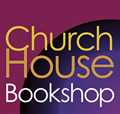Teaching Narnia is an imaginative resource for Key Stage 2 RE teachers, based on C.S. Lewis' classic 'Narnia' series. It includes background information about the stories and the author's life and provides a range of classroom activities linking to other curriculum areas such as literacy, PSHE, citizenship and drama. Interactive and visual elements support different learning styles, and there is a focus on encouraging creativity and developing thinking skills while making connections with personal values and behaviour. It includes assemblies for Christmas and Easter.
Olivia Warburton commissions Primary RE resources for the Bible Reading Fellowship. She studied English Literature at Trinity College, Cambridge and has worked for a children's literacy charity.
This is a wonderful resource in which the stories are allowed to speak for themselves. The lesson plans provide a stimulating trigger for the imagination, adn for creativity, and all of it in a meaningful way. Lewis wrote the Narnia Chronicles as children's stories, not as evangelistic tracts. And in this volume their "ancient power" shows why they have stood the test of time. The author is a Chambridge English Literature graduate. Teachers can use this volume in literacy and/or religious education with total conficence. I suspect Lewis would approve of that more than of anything else. Dennis Richards in Church Times 20 September 2013 From the Church Times - 20 September 2013 The Narnia stories have not enjoyed a particularly good press in recent years. Openly accused of sexism and racial stereotyping by some, and rejected as clumsy evangelism by others, the stories remain stubbornly attractive to Key Stage 2 children (aged seven to 11), and remain on best-seller lists year after year. Warburton addresses all this head-on: no doubt in 50 years' time critics will be debunking J. K. Rowling in a similar way. Lewis wrote his masterpiece in 1950, not 2013. The context, skilfully drawn out by the author, was the grinding deprivation and greyness of Britain in the immediate post-war years. This is a wonderful resource in which the stories are allowed to speak for themselves. The lesson plans provide a stimulating trigger for the imagination, and for creativity, and all of it in a meaningful way. Lewis wrote the Narnia Chronicles as children's stories, not as evangelistic tracts. And in this volume their "ancient power" shows why they have stood the test of time. The author is a Cambridge English Literature graduate. Teachers can use this volume in literacy and/or religious education with total confidence. I suspect Lewis would approve of that more than anything else.






